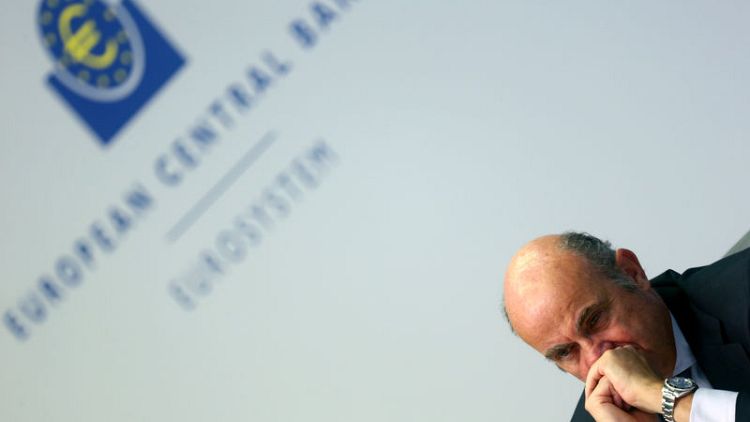LONDON (Reuters) - The likelihood of the European economy falling into recession is very low but the bloc is experiencing a continuing period of sub-par growth, European Central Bank Vice President Luis De Guindos said on Thursday.
De Guindos made the comments after data showed the euro zone's largest economy, Germany, narrowly avoided falling into a technical recession of two consecutive quarters of economic contraction.
Growth in Europe remains "below potential" De Guindos said at a BNP Paribas banking conference, adding that the ECB needed "to pay close attention" to the situation.
"A recession is a very unlikely event -- that is not going to happen," he said. "But I think the main risk is that we are going to have a long period of time with (growth) below potential."
In September, the ECB pushed euro zone interest rates further into negative territory and said it was restarting its mass bond-buying programme having only wound it down at the end of last year.
De Guindos said that in his opinion the ECB would need to expand its policy "toolkit", adding other instruments so that it can react to future economic downturns. He did not say what these might be.
De Guindos also echoed recent calls for governments to step up their economic support measures and said low bank profitability, blamed partly on the ECB's negative interest rates, was the main threat to euro zone financial stability.
"We are looking at the side effects, and the most obvious side effect is for instance the potential impact on the profitability of European banks," he said.
(Reporting by Marc Jones; Editing by Elizabeth Howcroft and Catherine Evans)



